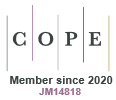CSIRO CAFE-60 submissions to the World Meteorological Organization operational decadal forecasts and the international multi-model data exchange
Mark A. Collier A * , Terence J. O’Kane B , Vassili Kitsios
A * , Terence J. O’Kane B , Vassili Kitsios  A C and Paul A. Sandery B
A C and Paul A. Sandery B
A CSIRO Oceans and Atmosphere, Aspendale, Melbourne, Vic. 3195, Australia.
B CSIRO Oceans and Atmosphere, Battery Point, Hobart, Tas. 7004, Australia.
C Laboratory for Turbulence Research in Aerospace and Combustion, Department of Mechanical and Aerospace Engineering, Monash University, Clayton, Vic. 3800, Australia.
Journal of Southern Hemisphere Earth Systems Science 72(1) 52-57 https://doi.org/10.1071/ES21024
Submitted: 16 September 2021 Accepted: 11 January 2022 Published: 22 February 2022
© 2022 The Author(s) (or their employer(s)). Published by CSIRO Publishing on behalf of BoM. This is an open access article distributed under the Creative Commons Attribution-NonCommercial-NoDerivatives 4.0 International License (CC BY-NC-ND)
Abstract
The Climate Analysis Forecast Ensemble (CAFE) system was developed by the Decadal Climate and Forecasting Project (DCFP) within the CSIRO Climate Science Centre (CSC) with the express purposes of providing operational ensemble forecasts of the near-term climate (1–10 years) and meeting the requirements of becoming a World Meteorological Organization (WMO) Global Data Producing Centre (GDPC) from which output has been provided in the UK Met Office (UKMO) international, multi-model data exchange. This CAFE-60 submission satisfied, at least, the minimum requirements for the CSC to become a Global Producing Centre for Annual-to-Decadal Climate Prediction (GPC-ADCP) of the WMO Lead Centre for Annual-to-Decadal Climate Prediction. In practical terms, this has meant running the CAFE-60 version 1 modelling system for years 1960–2020, or a 61-year set, with a modest ensemble size of 10. Each decade-long forecast was initialised from the beginning of each November using a state-of-the-art assimilation methodology, and delivering the minimum requested data to the coordinating centre within the UKMO. The number 60 in CAFE-60 refers to the initial year of the assimilation, 1960, where we believe there is adequate observational data to produce a meaningful reanalysis output product for wide scientific application. This document describes the key features of the CAFE-60 assimilation and forecasting system, the climate and forecasting conforming post-processed datasets along with how to access the datasets via the CSIRO Data Access Portal, and the quality control measures implemented to achieve the highest possible data quality and delivery. Part of becoming a Data Producing Centre is the ongoing need to supply CAFE-60 forecast data, at least on an ongoing annual basis, to the UKMO; therefore, obtaining CAFE-60 operational status requires significant ongoing resources and efforts to continue. In addition to the annual dataset submission by the DCFP as a minimum requirement of being declared a Data Contributing Centre, a separate application from the Australian Permanent Representative with WMO (Dr Andrew Johnson) was required to obtain the GPCP status; this was completed in early September 2020, making CSIRO one of only five centres with this special GPC-ADCP status currently in the world.
Keywords: decadal prediction, near term climate variability, operational climate predictions.
References
Delworth TL, Broccoli AJ, Rosati A, et al. (2006) GFDL’s CM2 global coupled climate models. Part I: Formulation and simulation characteristic. Journal of Climate 19, 643–674.Hersbach H, Bell B, Berrisford P, et al. (2020) The ERA5 global reanalysis. Quarterly Journal of the Royal Meteorological Society 146, 1999–2049.
| The ERA5 global reanalysis.Crossref | GoogleScholarGoogle Scholar |
Kobayashi S, Ota Y, Harada Y, et al. (2015) The JRA-55 reanalysis: General specifications and basic characteristics. Journal of the Meteorological Society of Japan. Ser. II 93, 5–48.
| The JRA-55 reanalysis: General specifications and basic characteristics.Crossref | GoogleScholarGoogle Scholar |
O’Kane TJ, Sandery PA, Monselesan DP, et al. (2019) Coupled data assimilation and ensemble initialization with application to multiyear ENSO prediction. Journal of Climate 32, 997–1024.
| Coupled data assimilation and ensemble initialization with application to multiyear ENSO prediction.Crossref | GoogleScholarGoogle Scholar |
O’Kane TJ, Sandery PA, Kitsios V (2021a) CAFE60v1: a 60-year large ensemble climate reanalysis. Part I: system design, model configuration and data assimilation. Journal of Climate 34, 5153–5169.
| CAFE60v1: a 60-year large ensemble climate reanalysis. Part I: system design, model configuration and data assimilation.Crossref | GoogleScholarGoogle Scholar |
O’Kane TJ, Sandery PA, Kitsios V (2021b) CAFE60v1: a 60-year large ensemble climate reanalysis. Part II: evaluation. Journal of Climate 34, 5171–5194.
| CAFE60v1: a 60-year large ensemble climate reanalysis. Part II: evaluation.Crossref | GoogleScholarGoogle Scholar |
Sandery P, O’Kane T, Kitsios V, Sakov P (2020) Climate model state estimation using variants of enKF coupled data assimilation. Monthly Weather Review 148, 2411–2431.
| Climate model state estimation using variants of enKF coupled data assimilation.Crossref | GoogleScholarGoogle Scholar |
Smeed D, McCarthy G, Rayner D, Moat B, Johns W, Baringer M, Meinen C (2015). Atlantic meridional overturning circulation observed by the RAPID-MOCHA-WBTS (RAPID-meridional overturning circulation and heatflux array-western boundary time series) array at 26N from 2004 to 2014. British Oceanographic Data Centre – Natural Environment Research Council. https://doi.org/
| Crossref |
UKMO (2020) Global annual to decadal climate update. UK Meteorological Office: World Meteorological Organization. Available at https://hadleyserver.metoffice.gov.uk/wmolc/WMO_GADCU_2019.pdf
UKMO (2021) Global annual to decadal climate update. UK Meteorological Office: World Meteorological Organization. Available at https://hadleyserver.metoffice.gov.uk/wmolc/WMO_GADCU_2020.pdf

